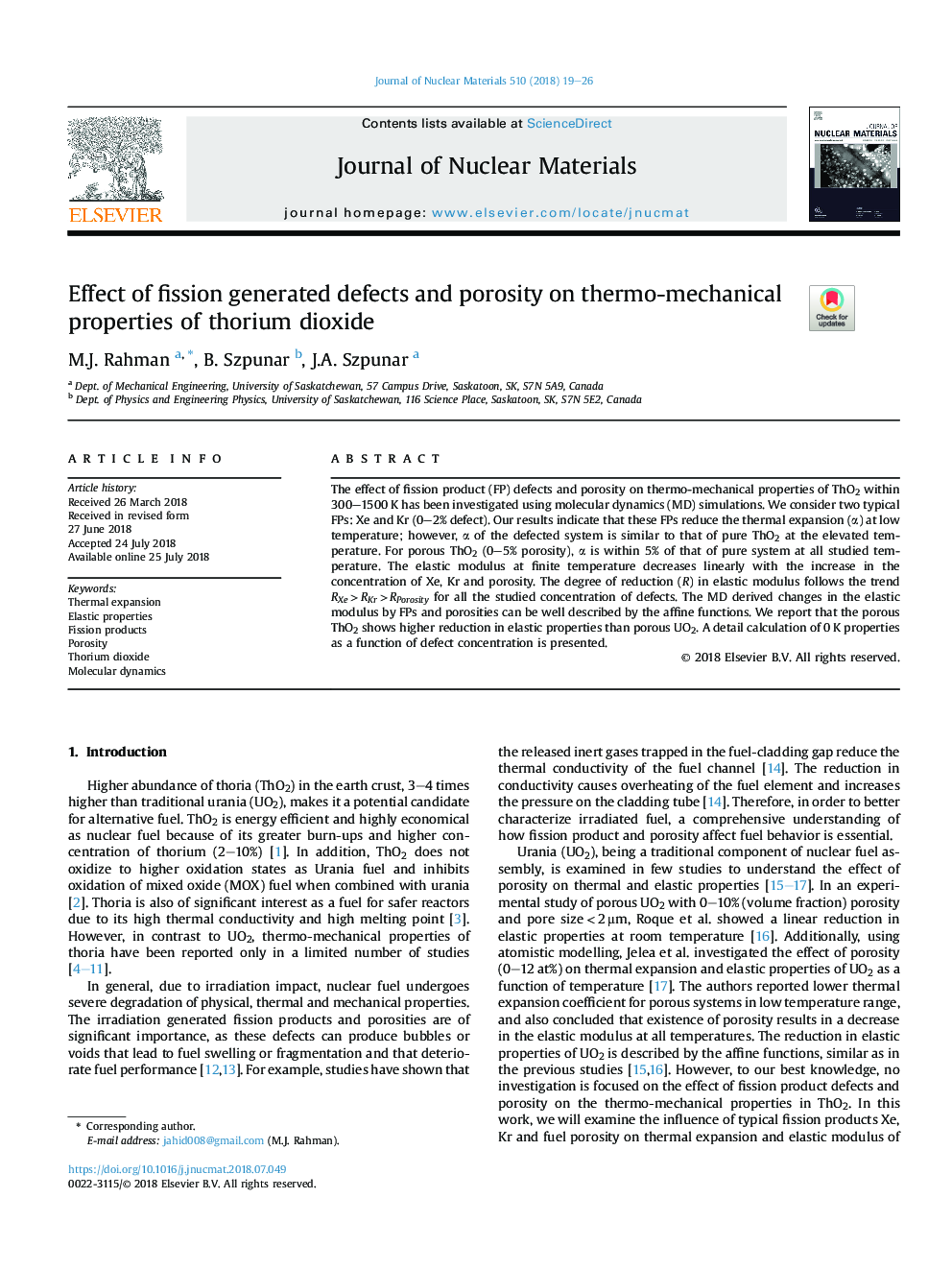| Article ID | Journal | Published Year | Pages | File Type |
|---|---|---|---|---|
| 7962906 | Journal of Nuclear Materials | 2018 | 8 Pages |
Abstract
The effect of fission product (FP) defects and porosity on thermo-mechanical properties of ThO2 within 300-1500â¯K has been investigated using molecular dynamics (MD) simulations. We consider two typical FPs: Xe and Kr (0-2% defect). Our results indicate that these FPs reduce the thermal expansion (α) at low temperature; however, α of the defected system is similar to that of pure ThO2 at the elevated temperature. For porous ThO2 (0-5% porosity), α is within 5% of that of pure system at all studied temperature. The elastic modulus at finite temperature decreases linearly with the increase in the concentration of Xe, Kr and porosity. The degree of reduction (R) in elastic modulus follows the trend RXe>RKr>RPorosity for all the studied concentration of defects. The MD derived changes in the elastic modulus by FPs and porosities can be well described by the affine functions. We report that the porous ThO2 shows higher reduction in elastic properties than porous UO2. A detail calculation of 0â¯K properties as a function of defect concentration is presented.
Keywords
Related Topics
Physical Sciences and Engineering
Energy
Nuclear Energy and Engineering
Authors
M.J. Rahman, B. Szpunar, J.A. Szpunar,
